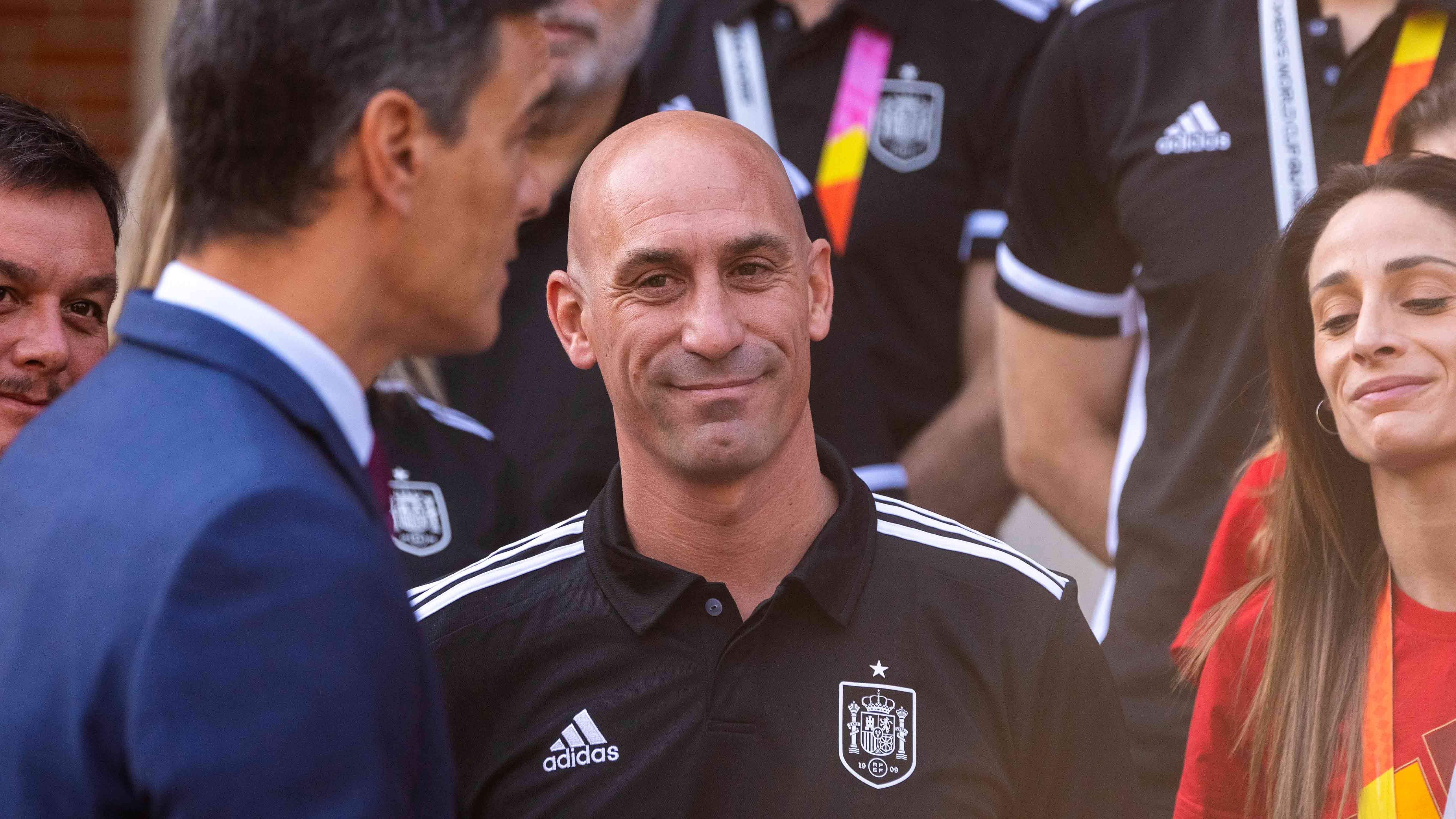
FIFA banned ousted former Spanish soccer federation president Luis Rubiales from the sport for three years on Monday for misconduct at the Women’s World Cup final where he forcibly kissed a player on the lips at the trophy ceremony.
FIFA did not publish details of the verdict reached by its disciplinary committee judges, who had investigated charges relating to “basic rules of decent conduct” and “behaving in a way that brings the sport of football and/or FIFA into disrepute.”
Watch NBC6 free wherever you are
Rubiales also is under criminal investigation in Spain for kissing player Jenni Hermoso on the lips after the team's 1-0 victory over England on Aug. 20 in Sydney, Australia. He denied wrongdoing to a judge in Madrid who imposed a restraining order for Rubiales not to contact Hermoso.
At the final whistle in Sydney, Rubiales had grabbed his crotch as a victory gesture in the exclusive section of seats with Queen Letizia of Spain and 16-year-old Princess Sofía standing nearby.
Get local news you need to know to start your day with NBC 6's News Headlines newsletter.
Rubiales was removed from office by FIFA judges during their investigation, and they also cited a third incident — “carrying the Spanish player Athenea del Castillo over his shoulder during the post-match celebrations” — in a ruling to explain why he was provisionally suspended.
The risk of witness tampering by Rubiales and his allies also was cited to justify the interim ban that is now confirmed to extend beyond the next men's World Cup in 2026 being hosted by the United States, Canada and Mexico.
Rubiales resigned from his jobs in soccer in September after three weeks of defiance that increased pressure on him from the Spanish government and national-team players.
“After my swift suspension by FIFA, and the rest of the cases building against me, it is clear that I cannot return to the post,” Rubiales said on Sept. 10 when finally giving up the federation presidency he had held since 2018.
Rubiales also had to give up his vice presidency of European soccer body UEFA which paid him 250,000 euros ($265,000) each year. UEFA later thanked Rubiales for his service in a statement.
When Rubiales resigned, which was coordinated with an interview with a British cable news channel, he noted not wanting to be a distraction from Spain’s bid to host the men’s 2030 World Cup in a UEFA-backed project with Portugal and Morocco.
That bid has since been picked by FIFA as the only candidate to host the 2030 tournament in a plan that now also includes its former opponents Argentina, Paraguay and Uruguay.
Rubiales can request details of the FIFA disciplinary verdict within 10 days and then file an appeal, soccer’s world body said. He could file a further appeal at the Court of Arbitration for Sport.



